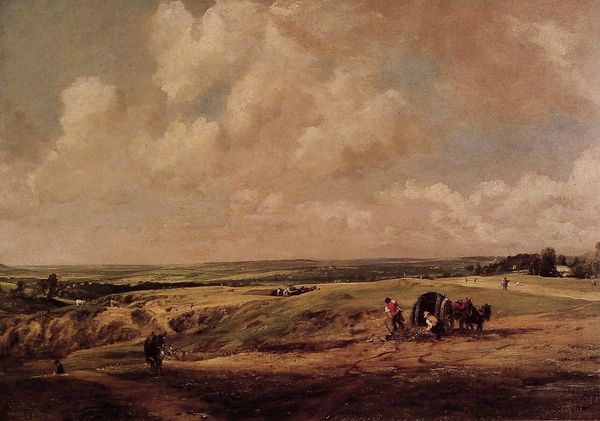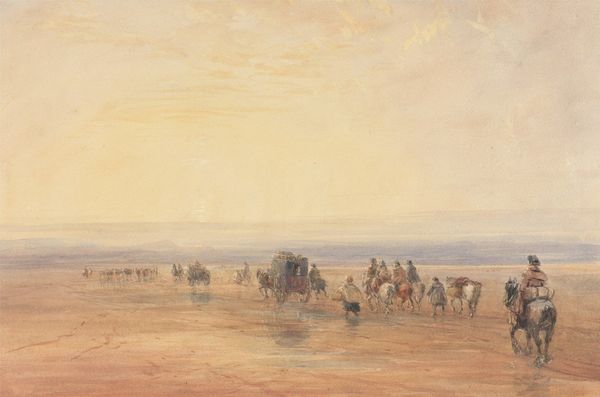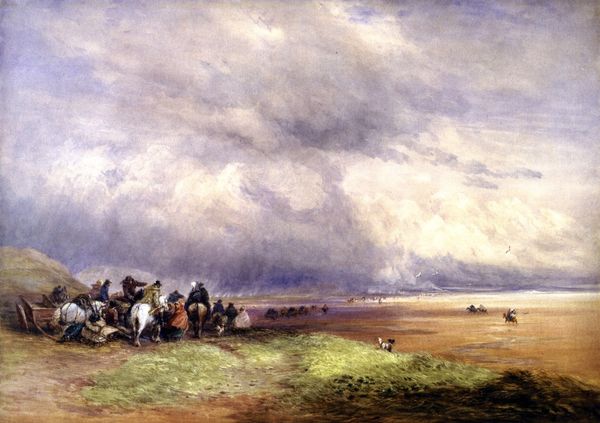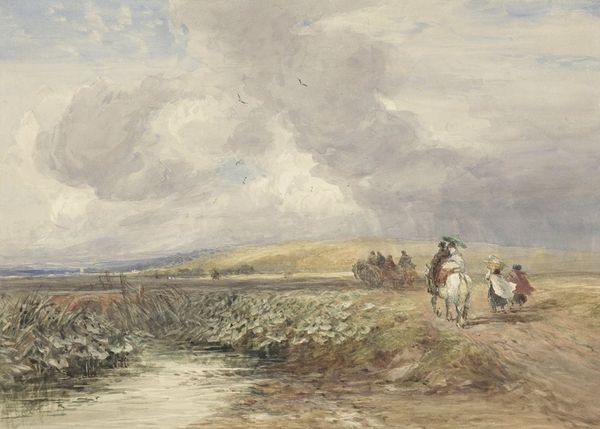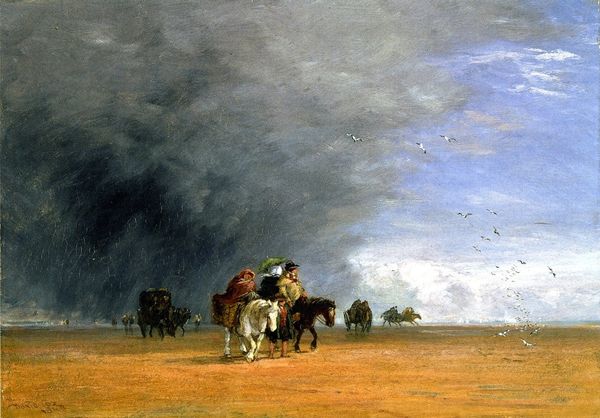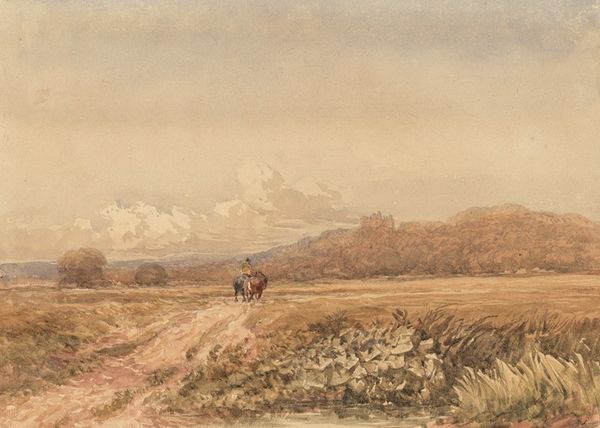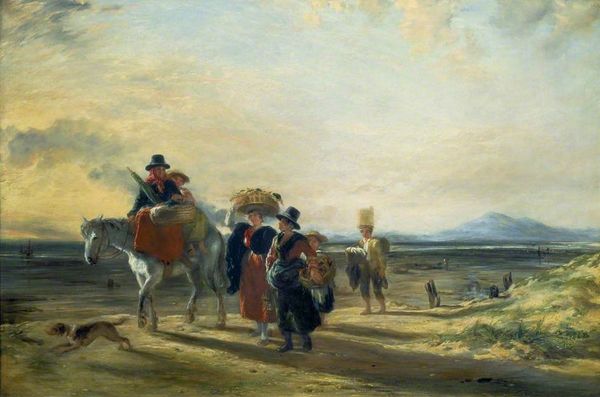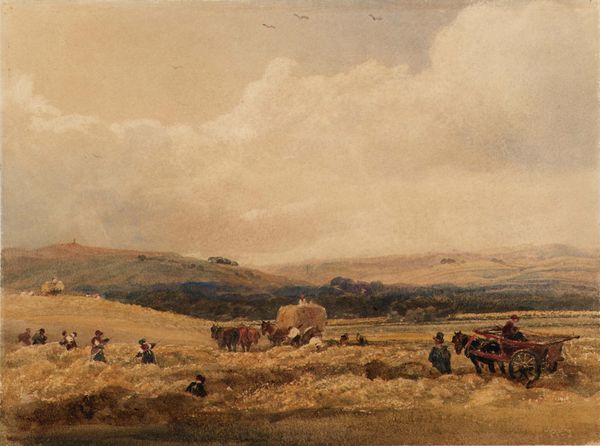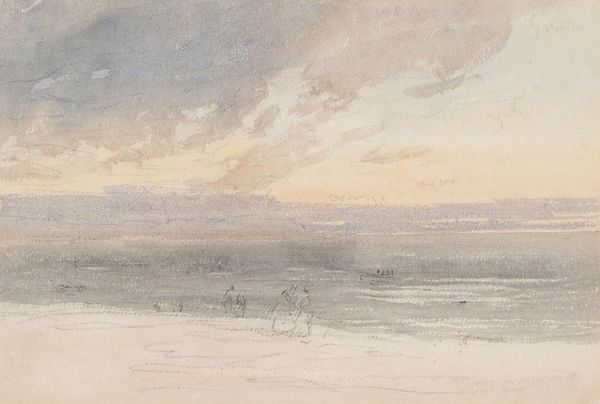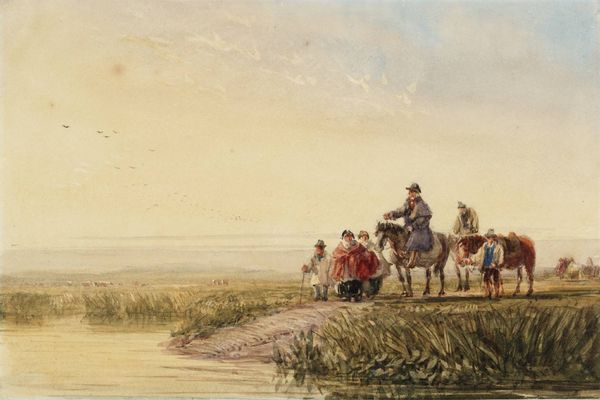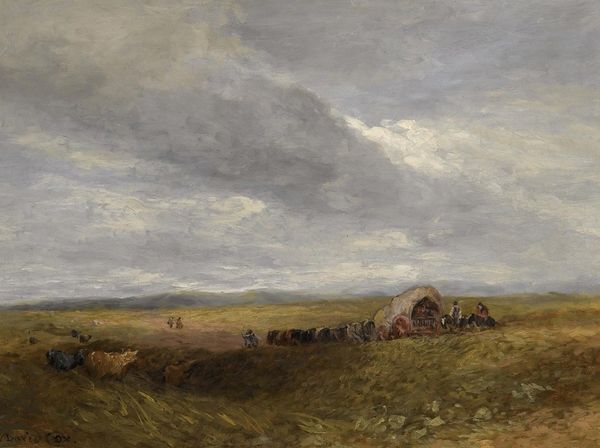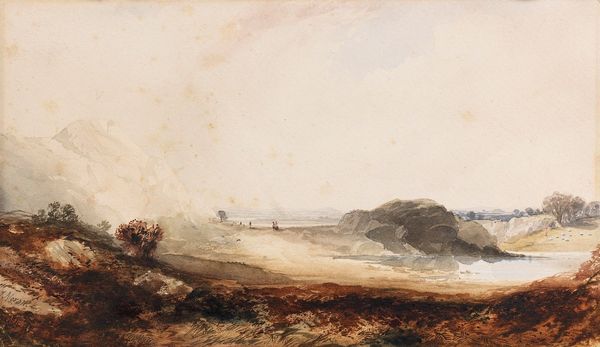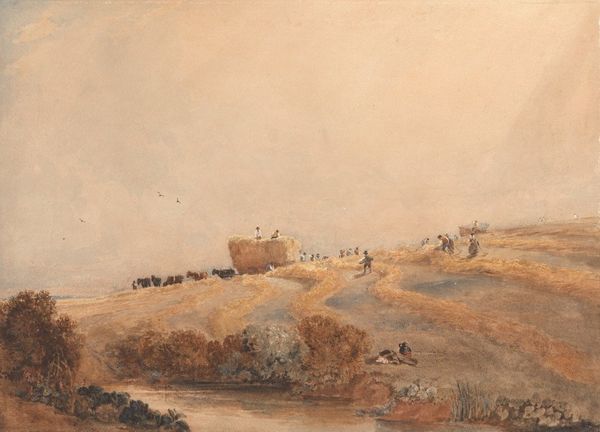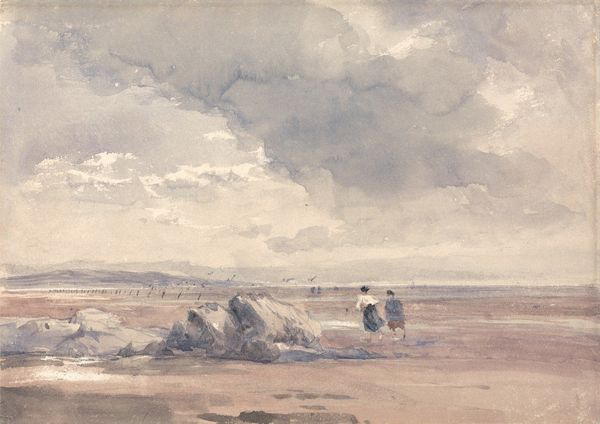
painting, watercolor
#
painting
#
landscape
#
oil painting
#
watercolor
#
romanticism
#
watercolour illustration
#
genre-painting
#
watercolor
Copyright: Public Domain: Artvee
Editor: This is David Cox's "Ulverstone Sands, Cumbria," painted in 1836. It’s a watercolour, and it really captures a sense of vastness and perhaps a bit of melancholy with its muted tones and expansive sky. What do you see in this piece? Curator: I see a romantic vision heavily implicated in the socio-economic realities of 19th-century Britain. The vast landscape isn't just a pretty view; it’s a space being traversed, worked upon, possessed. Notice the figures – travelers, workers, likely engaging in activities tied to nascent industrial expansion. Consider also that the Romanticism embraced in this era, particularly the pastoral focus, was idealized. What realities are obscured through this romantic lens? Editor: So, you're saying the landscape isn't just beautiful scenery; it represents something deeper? Like the labor and exploitation happening at the time? Curator: Precisely. And not only labor. Think about land ownership, resource extraction, and the displacement of rural populations during this period of industrial transformation. Cox was part of a generation grappling with profound societal shifts, portraying an imagined sense of rural calm against encroaching industrial advancement. Who owned the land? Who had access to it? Editor: That makes me think about who is missing from the scene, maybe those who were dispossessed or those who labored invisibly. It makes it a much more critical landscape painting. Curator: Indeed. Consider how art of this period served ideological functions, reinforcing certain narratives about nation, progress, and identity. Recognizing what's not readily visible becomes crucial for engaging critically with the artwork. Editor: This gives me a completely new perspective. It's no longer just a picturesque scene; it's a document, even a commentary, on its time. Thank you. Curator: And thank you. Let's continue seeking beyond aesthetics towards a fuller context, constantly questioning established viewpoints to appreciate an inclusive narrative.
Comments
No comments
Be the first to comment and join the conversation on the ultimate creative platform.
